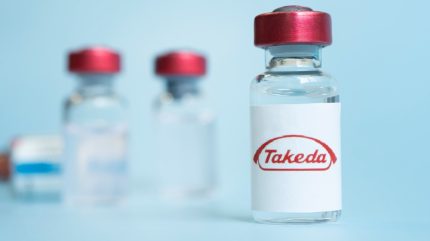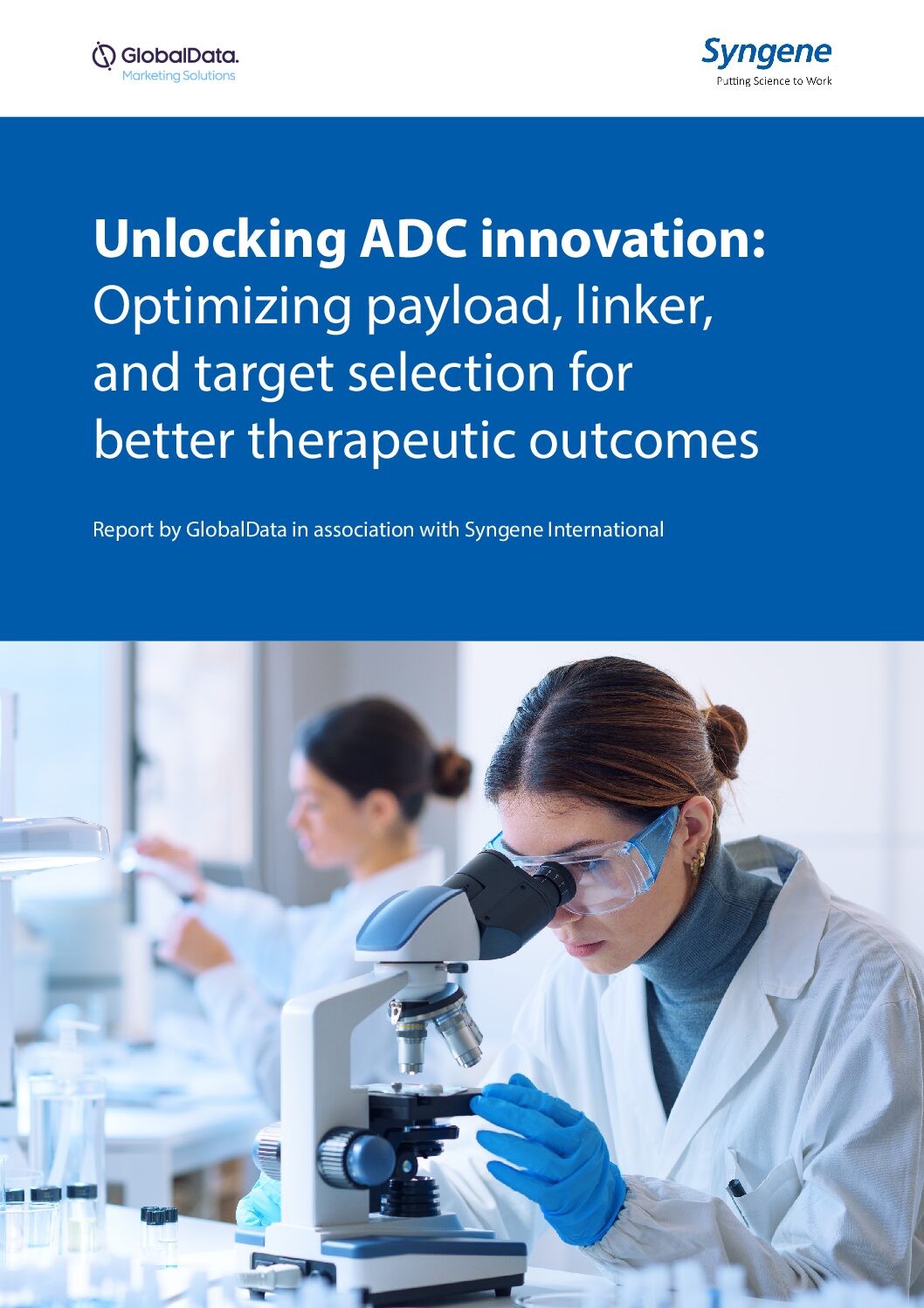

Takeda and Innovent Biologics have signed a deal worth up to $11.4bn following its bid to focus on bispecifics and antibody-drug conjugates (ADCs).
Through the agreement, Japan-based Takeda will acquire the rights to commercialise two of the Chinese biopharma’s clinical-stage oncology medicines worldwide. However, Innovent will retain US co-commercialisation rights for one candidate, and rights for all three candidates in China.

US Tariffs are shifting - will you react or anticipate?
Don’t let policy changes catch you off guard. Stay proactive with real-time data and expert analysis.
By GlobalDataThis includes IBI363, a bispecific antibody fusion protein being investigated for use in colorectal and non-small cell lung cancer (NSCLC). Together, Innovent and Takeda will co-develop IBI363 globally, splitting costs in a 60/40 ratio – with Takeda absorbing the larger portion of costs. The pair also plan to expand IBI363’s development into other unspecified cancer indications. Takeda will gain rights to commercialise IBI363 outside of the US and China.
Takeda will also gain the rights to Innovent’s pancreatic and gastric cancer ADC hopeful, IBI343, outside of China. The drug is currently being assessed in a Phase III trial (NCT06238843) in gastric cancer across China and Japan. Moving forward, Takeda hopes to advance IBI343’s development while expanding its use into first-line gastric and pancreatic cancer settings.
The deal also gives Takeda the exclusive option to license the global rights to the early-stage investigational bispecific ADC, IBI3001, outside of China. The first-in-class drug is currently being evaluated in Phase I for locally advanced or metastatic solid tumours.
This three-strong deal will set Takeda back $1.2bn upfront, while Innovent will also be eligible to cash in on up to $10.2bn worth of milestone payments.
In a 22 October statement, Takeda’s global oncology business unit president Teresa Bitetti noted that the IBI363 and IBI343 programmes could be “transformative” to the pharma’s oncology portfolio, potentially “significantly enhancing Takeda’s growth potential post-2030”.
China’s R&D presence continues to grow
Following its deal with Innovent, Takeda has become one in a chain of big pharma companies currently betting on innovative drugs developed in China.
This includes AstraZeneca, which invested $5.2bn into a chronic disease collaboration with CSPC Pharmaceuticals in June 2025. Together, the companies will discover and develop preclinical candidates for chronic disease.
Pfizer and Novartis have also signed deals with Chinese biopharma companies this year, with the former licensing 3SBio’s bispecific, SSGJ-707, in a $1.25bn deal. Meanwhile, the latter bought the rights to two of Argo Biopharma’s small interfering RNAs (siRNA) for severe hypertriglyceridemia (sHTG) and mixed dyslipidaemia, with an upfront payment of $160m and potential milestone and option payments of $5.2bn.
Big pharma’s interest in China’s R&D pipeline does not appear to be misplaced, as the nation now accounts for one-fifth of drugs in development globally.
The Chinese licensing trend can also be observed across the wider pharma sector, as 28% of the innovator drugs licensed in 2024 were produced by Chinese biopharma companies, according to GlobalData.
GlobalData is the parent company of Pharmaceutical Technology.
Meanwhile, the value of these deals is also on the up, as the price of licensing agreements involving Chinese biopharma companies soared 66% from $16.6bn in 2023 to $41.5bn in 2024.
Despite its burgeoning growth in the R&D space, China will still have to contend with hurdles imposed by the US Government, which recently brought the controversial BIOSECURE Act back into Congress.
If this bill were to be passed, it would significantly limit the capacity of Chinese biotechs and manufacturing companies to obtain US funding and collaboration deals with US pharma companies currently utilising federal funding reserves.
GlobalData analysts predict that the BIOSECURE Act could both destabilise the pharmaceutical industry and send drug development costs soaring.
ADC content on Pharmaceutical Technology (Or Clinical Trials Arena) is supported by Syngene. Editorial content is independently produced and follows the highest standards of journalistic integrity. Topic sponsors are not involved in the creation of editorial content.






